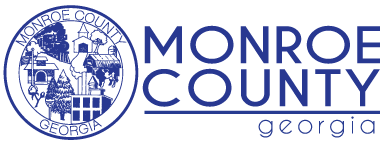Monroe County has been chosen as one of just seven nationwide communities to be part of the National Association of Counties’ (NACo) year-long Building Resilient Economies in Coal Communities (BRECC) Action Challenge.
NACo’s BRECC initiative, which is supported by the U.S. Department of Commerce’s Economic Development Administration (EDA), serves coal communities seeking to revitalize and diversify their economies, according to Naco.org.
According to Naco.org, “BRECC’s activities connect coal communities across the nation, support local leaders and build capacity in under-resourced communities. As a result, BRECC will prepare communities to advance new approaches and projects for economic diversification.”
Specifically, BRECC’s Coal Communities Action Challenge is a technical assistance program where seven communities in 2024 will “receive 12 months of individualized expert coaching that will result in the development of a community-led economic diversification strategy,” per the NACo program application.
District 2 Commissioner Eddie Rowland and Joe Evans, a retired State Bank executive and longtime Monroe County resident, were among the local leaders who championed Monroe County’s efforts to be a part of the 2024 BRECC Action Challenge program. Monroe County grant writer Tammy Selman assembled a committee of interested citizens and completed Monroe County’s BRECC Action Challenge application, which was submitted in November 2023. Monroe County was then notified in January 2024 that it had been selected as one of the nation’s seven Action Challenge communities, and an introductory webinar was held on Wednesday, Jan. 31.
Over the course of the next year, Monroe County’s BRECC Action Challenge committee will be provided monthly one-on-one coaching support by NACo partners, including the West Virginia Community Development Hub, Community Builders, and EntreWorks Consulting. Monroe County’s BRECC committee will also attend a quarterly virtual learning series and network with other selected coal community teams. At the conclusion of the process in February 2025, representatives from Monroe County’s BRECC committee will present the county’s action plan at NACo’s annual conference in Washington, D.C.
Selman will be the chairwoman of Monroe County’s BRECC Action Challenge committee while Commissioner Rowland will be the committee’s primary point of contact. Other Monroe County committee members listed in alphabetical order include: Middle Georgia Regional Commission Director of Planning and Public Administration Greg Boike, retired U.S. Air Force Lt. Col. and current Monroe County Tax Assessors’ board member Mark Dye, United Bank CEO Jim Edwards, Evans, Fickling & Company, Inc. President Roy Fickling, Georgia Tech Center for Economic Development Research Project Manager Betsy McGriff, City of Forsyth Manager Craig Mims, Monroe County Commission Chairman Greg Tapley, and Development Authority of Monroe County Executive Director Joyce White.
Monroe County will not receive any financial award from the EDA as part of the program. However, Monroe County will learn more about available federal funding opportunities related to energy infrastructure and clean energy initiatives, many of which are targeted at coal communities.
As part of the year-long initiative, Monroe County’s BRECC Action Challenge Committee will conduct a community assessment, identify goals and opportunities, develop potential projects, and establish action steps toward turning those projects into a future reality.
Monroe County was selected for the Coal Communities Action Challenge due to the local presence of Plant Scherer, the coal-fired power plant that has in Juliette since the early 1980s. Not too many years ago, Plant Scherer was the most powerful coal-fired plant in North America. However, in June 2020, Plant Scherer’s Unit 4 began the shutdown process, and Unit 3 is in the midst of a shutdown. Those closures have led to a 35 percent reduction in county tax revenue from Plant Scherer, which is the county’s largest taxpayer.
In Monroe County’s Coal Communities Action Challenge application, Selman outlined Monroe County’s desire to identify alternative industrial opportunities and revenue sources should Plant Scherer eventually shut down.
Selman wrote: “One of the goals of the Action Challenge will be to connect with additional state and/or federal agencies or practitioners to learn more about alternative energy solutions such as natural gas. Monroe County’s BRECC Team would also like to learn the strategies needed to facilitate networking and engagement opportunities across other rural communities that have experienced the same obstacles. Ideally, Monroe County would like to learn from similar rural communities the steps taken to implement effective energy change. . . resulting in a thriving community.”
Other communities selected to participate in BRECC’s 2024 Coal Communities Action Challenge include: Campbell County, Wyoming; Pendleton County and Grant County, West Virginia; Forest County, Pennsylvania; Mason County, Tazewell County, and Peoria County, Illinois; Montrose County and San Miguel County, Colorado; and Somerset County, Pennsylvania.
For more information on NACo’s BRECC initiative, visit www.naco.org/BRECC



